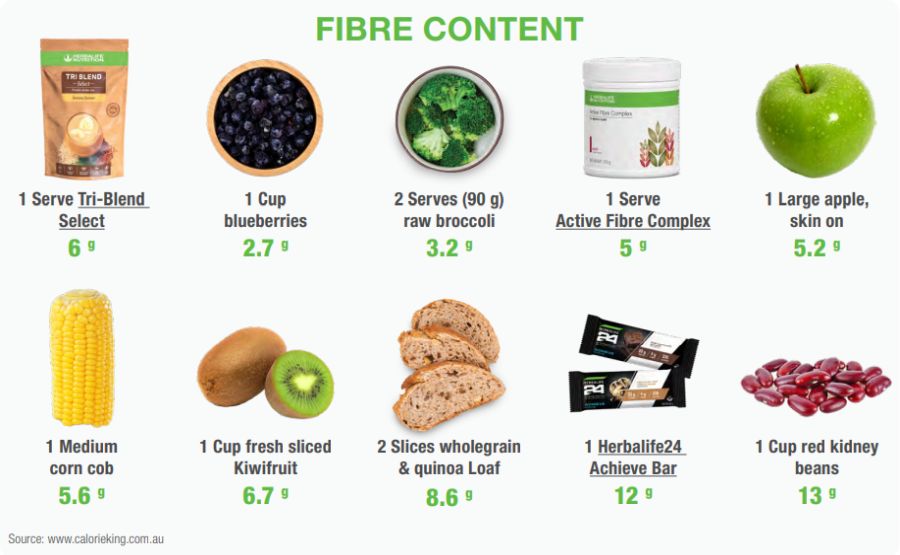Clean Your Gut for Better Performance

There is nothing like a good spring clean to overhaul our home, clothing, exercise regime, headspace and nutrition. Spring is also a great opportunity to take a look at our gut health and how it can positively or negatively impact sports performance.
So often, we focus on physical training, but having our gut functioning at an optimal level can play a large role in how you perform physically. Did you know, for example, that the internal environment of our gut is just as important, if not more, than our external environment? At every moment of the day, there are tons of processes that are going on in our gut to help maintain normal digestion and overall health. Not only has the health of our internal environment, or microbiome, been associated with physical health, but our mental health has been too.
How Exercise and Digestion Work Together
One of the reasons that the health of the microbiome is so important, is that it is home to thousands of strains of beneficial bacteria that helps break down foods, allowing you to obtain more nutrients from food. When you combine exercise with a high-fibre high-nutrient diet, research has shown that this can help increase good bacteria in the gut. When there are not enough good bacteria, the impact on your digestive system can also be significant. Common symptoms may include cramping, heartburn, irregularity, and more, which can prevent you from completing a race or workout. However, a healthy microbiome has been shown in literature to have positive impacts during exercise, such as increasing the oxygen supply to working muscles. Similarly, regular physical activity is also good for your gastrointestinal health. According to the Journal of the International Society of Sports Nutrition, exercise can promote a healthier gut, marked by a more diverse microbiome and a higher abundance of beneficial gut bacteria.
How to Improve Your Gut Health
Regardless of your fitness level, there are many simple things to pay attention to that can help maximise your gut health, and in turn improve your overall health:
Consume Enough Fibre
Fibre is found in foods like fruits, vegetables, beans, and whole grains. According to New Zealand and Australian health experts, adults should be consuming 25-30 g grams of fibre a day, however many people fall well short of this goal. To up your daily intake of fibre try adding:
Fibre Content

- 1 Serve Herbalife Tri-Blend Select – 6 g
- 1 Cup blueberries – 2.7 g
- 2 Serves (90 g) raw broccoli – 3.2 g
- 1 Serve Herbalife Active Fibre Complex – 5 g
- 1 Large apple, skin on – 5.2 g
- 1 Medium corn cob – 5.6 g
- 1 Cup fresh sliced Kiwifruit – 6.7 g
- 2 Slices wholegrain & quinoa Loaf – 8.6 g
- 1 Herbalife24 Achieve Protein Bar – 12 g
- 1 Cup red kidney beans – 13 g
Source: www.calorieking.com.au
Get Some Good Bacteria
Many foods such as yoghurt, miso and tempeh, as well as some picked foods, contain healthy bacteria (or probiotics) that can benefit your gut. To up your intake of beneficial probiotics, try eating:
- Fermented vegetables such as cucumber pickles, sauerkraut, and kimchi, olives, and sauerkraut
(only when sold refrigerated; canned products
are heated during processing, which destroys the beneficial bacteria.) - Fermented soy products such as miso and tempeh
- Cultured non-dairy yogurts (look for “live active cultures” on the label)
- Kombucha beverages
- Other foods to which probiotics have been added,
such as cereals or protein bars
You can also consider a probiotic such as Probiotic Complex to support your digestive health. Probiotics deliver millions of friendly bacteria into the gut to help maintain healthy digestive function and promote and maintain the growth of friendly bacteria.
Keep a Food Log
Changing your dietary habits can result in significant changes, both positive and negative, to your digestion and overall feeling of wellness, particularly when it comes to exercise performance. Documenting what you eat and when you eat not only helps track the amount of food you consume but this can also help pinpoint any digestive issues that might have an impact on your overall performance.
Dietary Fibre Recommendations: www.nrv.gov.au/nutrient/dietary-fibre
Always read the label. Use only as directed.
Original Article from Herbalife Nutrition
